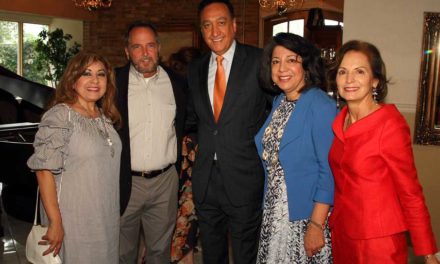Priscilla Mendoza , MSW Student at Our Lady of the Lake of the Lake University
Years back in the Hispanic culture, the man’s role was known as the breadwinner; he set the law in his home. This concept was familiar to every household on our Southeast side of San Antonio. If the woman ruled the house, the man was considered a wimp or what the other men called in the Hispanic community “un Mandilon.” A Mandilon meant a man who does not wear the pants in his home. Domestic violence was seen as something that just happened in relationships, especially those who were married. That was the way things were. Today, women are fighting back and making their voices heard. Hispanic women have come a long way, but it is clear there is still a problem that continues to grow in our community; in the streets of San Antonio, there are women who are still facing domestic violence. Married women are not just experiencing Intimate Partner Violence (IPV), but young women in relationships as young as sixteen years old. Women in the Hispanic community are fronting domestic violence and losing their lives through what is being called an “epidemic.” The National Coalition Against Domestic Violence explains, “in Texas 72 % of all murder-suicides involved an intimate partner; 94% of these crimes are female.
Furthermore, evidence indicates that 64.2 % were from the Latino community in San Antonio. What makes it horrible is that when a mother loses her life in the hands of the abuser, and most often, it occurs in front of her very own children. How traumatizing is that? How can we change this? Fortunately, Violence Against Women Act (VAWA) protects women by providing the first National hotline for domestic violence, grants for women shelters and interventions, and bringing justice to the abuser. Protection for women has been tested at every angle to keep women with an open mind; there is help out there if we can expand this legislation law and dig a little deeper by focusing on the root of the problem, which is the abuser. Abusers are not monsters; although they can be portrayed as one, they are not. They are our brothers, fathers, grandfathers, husbands, friends, and neighbors. Our Hispanic community is evolving by education, policies, and traditions. My proposal is to get involved with our political leaders and seek state and federal grants to help programs such as the Bexar County Justice Program “The Reflejo Court” led by our Honorable Judge Rosie Speedlin Gonzalez. Family Violence Prevention Services is one of a few nonprofit agencies that focus on the victims and the abusers by providing counseling and intervention services to benefit the individual and family. The only issue behind this positive change is that there needs to be more funds and grants to continue to fight against this war against domestic violence. I believe taking interest and helping the abusers is one step more that needs to take place to help our women.








